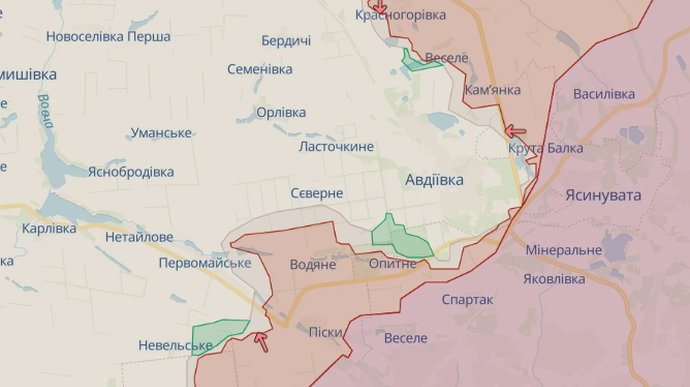Biden requests $4B from Congress to address Baltimore bridge, natural disasters
The White House asked Congress on Friday for $4 billion in emergency money to address the collapse of Baltimore’s Francis Scott Key Bridge, in addition to tornado, wildfire and hurricane recovery needs nationwide. The emergency funding request, known as a supplemental, comes after lawmakers approved a long-stalled $95 billion foreign aid package in April, following months of partisan squabbling and Republican resistance to additional Ukraine aid. The $4 billion ask builds on President Joe Biden’s request last fall for $56 billion for child care, internet connectivity needs and more, a push which hasn’t garnered the same Hill momentum. Issues like the Baltimore bridge collapse and disaster aid, however, have amassed clear bipartisan support. Without the extra cash, administration officials have warned the bridge collapse recovery will drain an emergency pot of federal transportation funding, while FEMA’s disaster relief program could run out of money at the height of hurricane season later this summer. It’s unclear whether this new emergency funding request will eventually receive a standalone vote in Congress or get attached to a must-pass bill, like a stopgap spending measure that lawmakers will almost certainly have to pass in order to avoid a government shutdown Oct. 1, when federal cash expires. Attaching the money to a stopgap bill is “probably the easiest way” to get the emergency funding across the finish line, House Appropriations Chair Tom Cole (R-Okla.) said Friday. But Cole noted some concern that FEMA’s disaster relief fund, for example, will dry up before Congress can pass that short-term funding bill, also known as a continuing resolution. Specifically, the White House wants $3.1 billion for the Transportation Department’s emergency relief program to cover the Baltimore bridge and other needs, in addition to $700 million for the Community Development Block Grant Disaster Recovery program for Maui wildfires and severe storms across the U.S., including tornado and hurricane recovery efforts. The administration is also reupping its request last fall to replenish FEMA’s disaster relief fund, stabilize the child care industry, bolster border security, and address firefighter pay and internet connectivity needs. Biden has requested that the federal government foot the entire bill for rebuilding the Baltimore bridge. But some Republicans have raised concerns about taxpayers shouldering so much of the cost, demanding offsets or rebuffing the administration’s push for a 100 percent federal cost-sharing approach. “I’ve told the White House this — whatever we’re doing for one place, we’re doing for the other place,” Cole said, arguing that while Maryland needs the emergency money, the bridge shouldn’t receive preferential treatment over other disaster-affected areas. “So if we’re suspending things and, you know, ratios and payments and whatever, I intend for it to be the same across the board. I’m not going to treat one part of the country one way and another part another way,” Cole said.
The White House asked Congress on Friday for $4 billion in emergency money to address the collapse of Baltimore’s Francis Scott Key Bridge, in addition to tornado, wildfire and hurricane recovery needs nationwide.
The emergency funding request, known as a supplemental, comes after lawmakers approved a long-stalled $95 billion foreign aid package in April, following months of partisan squabbling and Republican resistance to additional Ukraine aid. The $4 billion ask builds on President Joe Biden’s request last fall for $56 billion for child care, internet connectivity needs and more, a push which hasn’t garnered the same Hill momentum.
Issues like the Baltimore bridge collapse and disaster aid, however, have amassed clear bipartisan support. Without the extra cash, administration officials have warned the bridge collapse recovery will drain an emergency pot of federal transportation funding, while FEMA’s disaster relief program could run out of money at the height of hurricane season later this summer.
It’s unclear whether this new emergency funding request will eventually receive a standalone vote in Congress or get attached to a must-pass bill, like a stopgap spending measure that lawmakers will almost certainly have to pass in order to avoid a government shutdown Oct. 1, when federal cash expires.
Attaching the money to a stopgap bill is “probably the easiest way” to get the emergency funding across the finish line, House Appropriations Chair Tom Cole (R-Okla.) said Friday. But Cole noted some concern that FEMA’s disaster relief fund, for example, will dry up before Congress can pass that short-term funding bill, also known as a continuing resolution.
Specifically, the White House wants $3.1 billion for the Transportation Department’s emergency relief program to cover the Baltimore bridge and other needs, in addition to $700 million for the Community Development Block Grant Disaster Recovery program for Maui wildfires and severe storms across the U.S., including tornado and hurricane recovery efforts.
The administration is also reupping its request last fall to replenish FEMA’s disaster relief fund, stabilize the child care industry, bolster border security, and address firefighter pay and internet connectivity needs.
Biden has requested that the federal government foot the entire bill for rebuilding the Baltimore bridge. But some Republicans have raised concerns about taxpayers shouldering so much of the cost, demanding offsets or rebuffing the administration’s push for a 100 percent federal cost-sharing approach.
“I’ve told the White House this — whatever we’re doing for one place, we’re doing for the other place,” Cole said, arguing that while Maryland needs the emergency money, the bridge shouldn’t receive preferential treatment over other disaster-affected areas.
“So if we’re suspending things and, you know, ratios and payments and whatever, I intend for it to be the same across the board. I’m not going to treat one part of the country one way and another part another way,” Cole said.


